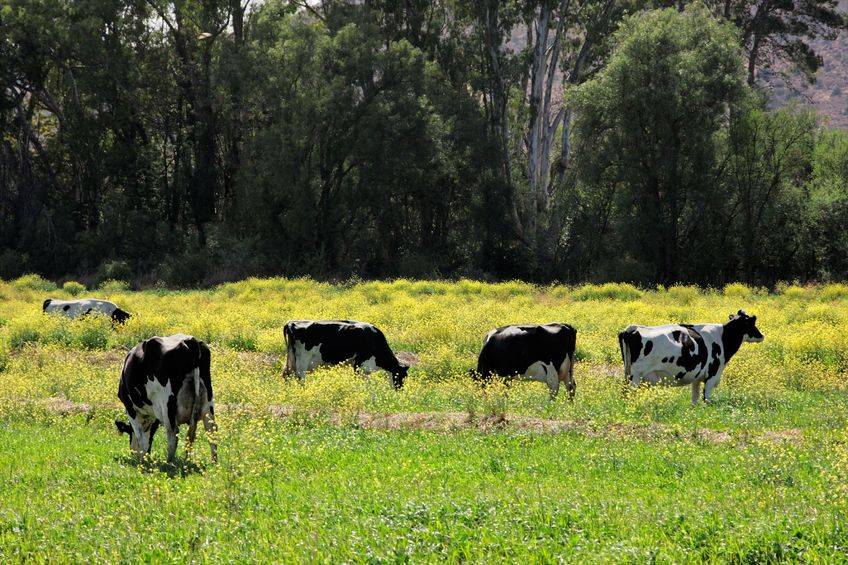
A "collaborative, trusting and transparent" relationship between dairy processors and producers in Wales is more important than ever before in light of the uncertainty surrounding Brexit.
That is the message from farming union NFU Cymru at the Welsh Dairy Show in Carmarthen on Tuesday (24 October).
With milk prices on the rise, there’s no doubt that this year’s Welsh Dairy Show will see milk producers in a more upbeat mood than they were 12 months ago.
However, with Brexit drawing closer and the open-sided nature of many milk contracts skewed towards the processor, these are still uncertain times for the dairy industry in Wales.
NFU Cymru Milk Board Chairman Aled Jones said: “With Brexit looming large on the horizon, now is the time for milk producers to take stock and look at their relationship with their milk purchaser.
“The introduction of Dairy Producer Organisations (DPOs) is something that NFU Cymru has supported for a long time now, and we believe that advocating the right producer representation could pave the way for producer organisations here in Wales, where appropriate.
“Presently most of us deal on an individual basis with our processors but, long-term, I think that we are far stronger if we speak as one voice. For some, DPOs could bring longer term contracts providing better security - we are already seeing five-year contracts in place in Ireland.”
Stable prices
A report by the European Commission states that more than 60% of DPOs have earned better or more stable milk prices for their farmers.
The focus of the report is the important role DPOs can play in increasing farmer bargaining power, it lines up with the NFU dairy board’s asks including its calls for fairer, more balanced milk contracts and stronger producer representation.
Mr Jones continued: “I would also urge all buyers to provide options in their contracts to help producers manage milk price risk. I would like to see more opportunity for forward contracts for all or part of annual milk production to protect against volatility and provide certainty on price and volume for both producer and processor.
“There is also an opportunity for the futures market as a price smoothing mechanism. It is encouraging that some dairy companies have started on these routes but we need more to do so.”
Futures market
Stock Exchange-traded contracts could improve hedging and planning reliability for farmers by tackling high volatility, according to a report.
Private sector financial instruments such as futures and options can help farmers to tackle risks stemming from unforeseen price shocks and enhance planning reliability.
Dairy financial products have been around in the United States since the 1990s, while such contracts were only introduced in the European Union as recently as in 2015 in the current form.
Volumes traded are still low but significantly increasing, thus showing a growing interest for futures in the dairy market.
“For this to work, we need improved transparency and accurate up-to-date milk price reporting mechanisms. We require the support of Government to put a mandatory mechanism in place covering both milk price and volumes,” Mr Jones explained.
'Huge opportunity'
Mr Jones will also use the Welsh Dairy Show to talk about the wider challenges and opportunities facing the industry as a result of the UK’s impending departure from the EU.
“Despite the current uncertainty surrounding Brexit, there are opportunities for the Welsh dairy sector. I believe that our climate and rainfall will increasingly make us a favoured area for milk production as climate change impacts on global production systems,” he said.
“To grasp these opportunities we need to see close cooperation and improved collaboration across the supply chain and contracts in place that help give producers greater certainty, clarity and security over milk price.”
